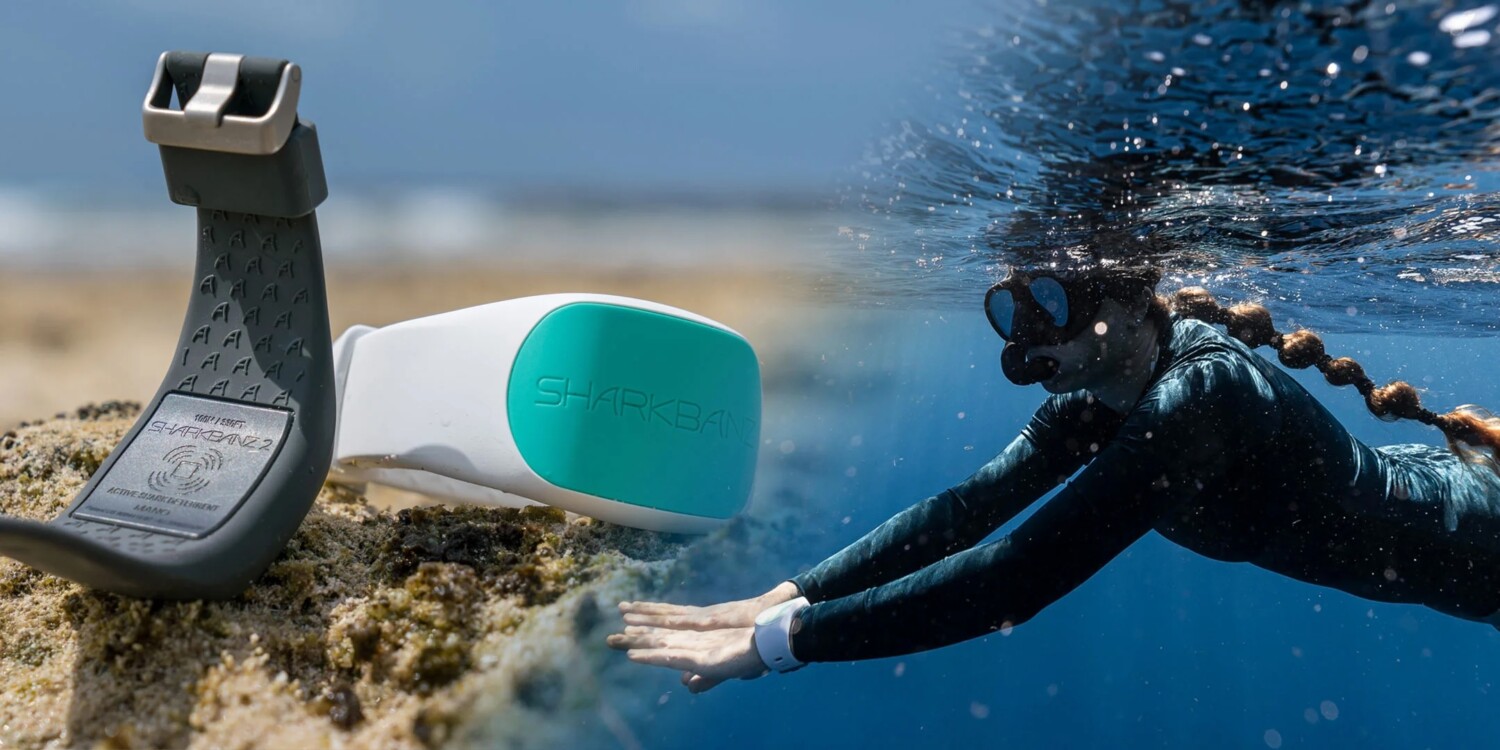
Best Reader Tips of 2025
Consumer complaints worth remembering.
You reportedly have a greater chance of being injured by a flip flop or crushed to death by a vending machine than being killed by a shark. But for some, that may not make the idea of being attacked by a shark in open water any less scary (thanks, Jaws).
Sharkbanz claims its wearable shark deterrent tech outsmarts sharks. And according to countless customer testimonials on the company’s Instagram account and website, the products work. Some even credit Sharkbanz for saving their life after a close encounter with a shark.
Sharks use an ability to detect electrical fields called electroreception to hunt and navigate. Sharkbanz claims its products are able to disrupt sharks’ electroreception by using magnetic technology to send a message to the sensory organ ampullae of lorenzini telling the ocean predators to “stay away.”
“Marine biologists compare this deterrent sensation a shark feels to a ‘bright light’ suddenly shining in your eyes when in a dark room,” the company says.
Sharkbanz claims that its products have a similar deterrent effect on stingrays, another species that uses electroreception to detect and catch prey.
Sharkbanz boasts that its products are “researched, tested [and] proven” and are “the result of almost two decades worth of peer-reviewed scientific research and field studies on the use of patented magnetic technology as an active and effective shark deterrent.”
But TINA.org took a closer look at the company’s studies and found several issues with the purported research.
On its research page, Sharkbanz touts “university validated research” in the form of a 2017 study that tested the company’s products on bull sharks in the Bahamas. (Of note, there are more than 500 different species of sharks; this study only looked at one.) The study reportedly found that there were no bull shark attacks on a human dummy with Sharkbanz, compared to an attack every 46 seconds on average without Sharkbanz.
But what Sharkbanz means by “university validated” may surprise you. A Master of Science candidate in the Coastal Marine and Wetlands Science program at Coastal Carolina University did review footage provided to him by Sharkbanz (which conducted the study). And he agreed with the company that the human dummy without Sharkbanz had a “statistically higher rate” of bull shark bites than the dummy with Sharkbanz. However, he concluded that:
[M]ore research is required to determine the efficacy of the product under real-world conditions. Future studies could benefit from more rigorous scientific and statistical methodologies to determine bull shark behaviors and responses to Sharkbanz [products] under field conditions in which interactions between bull sharks and swimmers might occur.
Also on the research page, Sharkbanz links to a 2025 “compilation report” that includes a list of “repellent technology peer-reviewed research papers.” But none of these papers looked at Sharkbanz specifically and several discuss research into the use of magnets to reduce encounters with nets and bycatch species, as opposed to humans.
In addition, some of the cited research acknowledges that studies examining the use of magnets to deter sharks have produced “mixed results” and “contrasting results both between and within species.”
Meanwhile, some third-party testing has found that Sharkbanz products have no effect on the behavior of white sharks.
The fine print
Despite marketing its products as “scientifically proven” to deter sharks and featuring numerous life-saving testimonials, the fine print on the Sharkbanz website reveals that the products do not eliminate the risk of being attacked by a shark.
As a legal disclaimer on product pages (that consumers must click on in order to read) states:
Sharkbanz have not been tested on all species of sharks or rays. Sharkbanz can reduce the risk of shark and ray interactions, but there is no 100% guarantee that interactions will not take place. … Any human activity in the water near sharks or rays must always be considered as possessing a considerable degree of risk which is assumed solely by the wearer.
The disclaimer goes on:
Sharkbanz are a defense against the most common type of dangerous shark interaction: ‘hit and run’ attacks/bites. These are investigative, unprovoked incidents. Much like other safety devices, such as a bike lights, Sharkbanz can reduce the risk – they do not eliminate the risk altogether.
Sharkbanz did not respond to TINA.org’s request for comment.
The bottom line
If you’re looking for protection before entering shark-infested waters, it’s best to do your research so that you fully understand the level of protection you’re actually getting.
Find more of our coverage on scientifically proven claims.
Our Ad Alerts are not just about false and deceptive marketing issues, but may also be about ads that, although not necessarily deceptive, should be viewed with caution. Ad Alerts can also be about single issues and may not include a comprehensive list of all marketing issues relating to the brand discussed.
Consumer complaints worth remembering.
Can supplements really help your child reach new heights?
Products contain some surprising ingredients for a drink advertised as “like water.”


